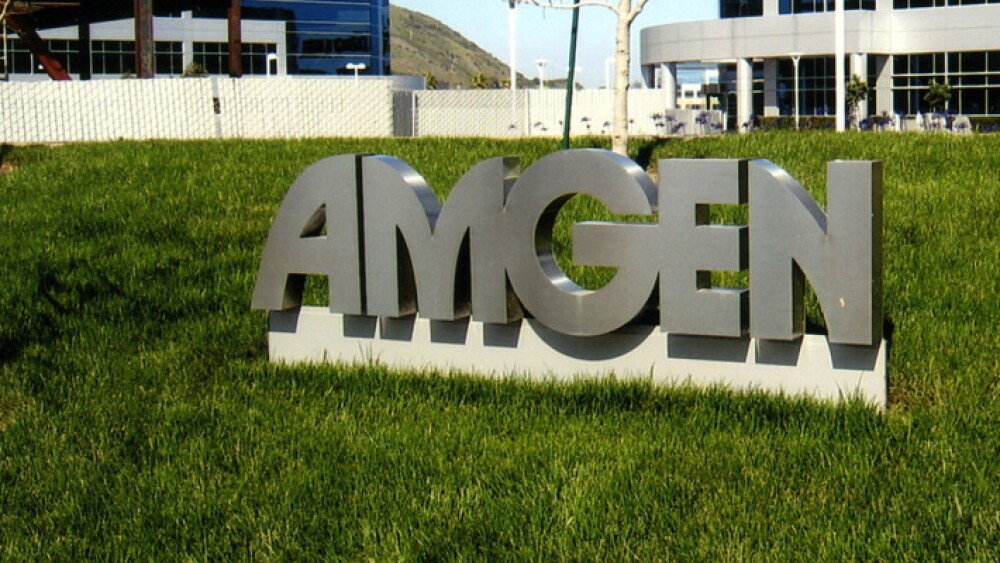July 13, 2016
By Alex Keown, BioSpace.com Breaking News Staff
THOUSAND OAKS, Calif. – Following a positive review for its biosimilar drug from a U.S. Food and Drug Administration advisory panel, Amgen is moving closer to being able to challenge AbbVie’s Humira as one of the dominant drugs in the rheumatoid arthritis and plaque psoriasis.
In a 26-0 decision, the FDA panel unanimously agreed that Amgen’s biosimilar drug, ABP 501, is similar in safety and effectiveness to Humira. In its report, the panel said Amgen provided extensive analytical and clinical pharmacology bridging data to demonstrate biosimilarity to Humira.
“The results of the clinical development program indicate that Amgen’s data support a demonstration of “no clinically meaningful differences” between ABP 501 and U.S.-licensed Humira in terms of safety, purity and potency in the indications studied,” the panel said in its report.
Additionally, the panel said that the efficacy of Amgen’s biosimilar drug could be extrapolated to support other conditions for which Humira is approved, which includes adult Crohn’s disease and ulcerative colitis. The panel recommended the biosimilar should be approved for those treatments as well.
Although there is no cure for rheumatoid arthritis, advances in biologics, such as Genentech ’s Rituxan, or anti-tumor necrosis factor (TNF) biologics like Humira, are widely prescribed to help alleviate the symptoms and allow patients to lead productive lives. But, a new day may be coming for RA therapies with the nearing approval of biosimilars. Biosimilars, which are made inside a living cell, are always uniquely different in composition, which differentiates them from generic drugs, which are exact replicas of other drugs. Biosimilar drugs have been widely available in Europe since 2006. Last year Sandoz, a subsidiary of Novartis AG, won approval for the first biosimilar drug in the United States, a version of Amgen’s Neulasta, called pegfilgrastim, which is used to fight infection in cancer patients. That approval has made a clearer path for other biosimilar drugs to be approved in the U.S.
While the panel unanimously supported Amgen’s biosimilar, AbbVie , the maker of Humira, is fighting the possible approval of the biosimilar, saying there are patents in place to protect Humira until 2022, Reuters noted. Humira is AbbVie’s biggest revenue generator. Last year the drug accounted for $14 billion, about 60 percent of the company’s total revenue. Because of its patent argument, AbbVie has suggested Humira will continue to be a strong driver of revenue, particularly as it is approved for other uses. The company is looking to expand the use of Humira beyond what it currently has U.S. Food and Drug Administration approval for. This morning, the company said it will present data from a Phase III trial using Humira to treat fingernail psoriasis.
Amgen and AbbVie are likely to go to court over the patent argument, but some analysts told Reuters they expect to see Amgen’s biosimilar drug on the market before 2022. Because of that likelihood, the analysts told Reuters they anticipated sales of Humira to drop about 19 percent.
In addition to its biosimilar, Amgen currently has the RA treatment Enbrel in its pipeline. That drug is facing its own biosimilar challenge from Novartis. The FDA is expected to rule today on Novartis’ biosimilar, Reuters said. Earlier this week, an FDA panel ruled that Novartis’ biosimilar is highly similar to Enbrel, which generated $5 billion in revenue for Amgen last year.
Despite the panelists overwhelming support for the biosimilars, the FDA is not obligated to support the recommendation.





